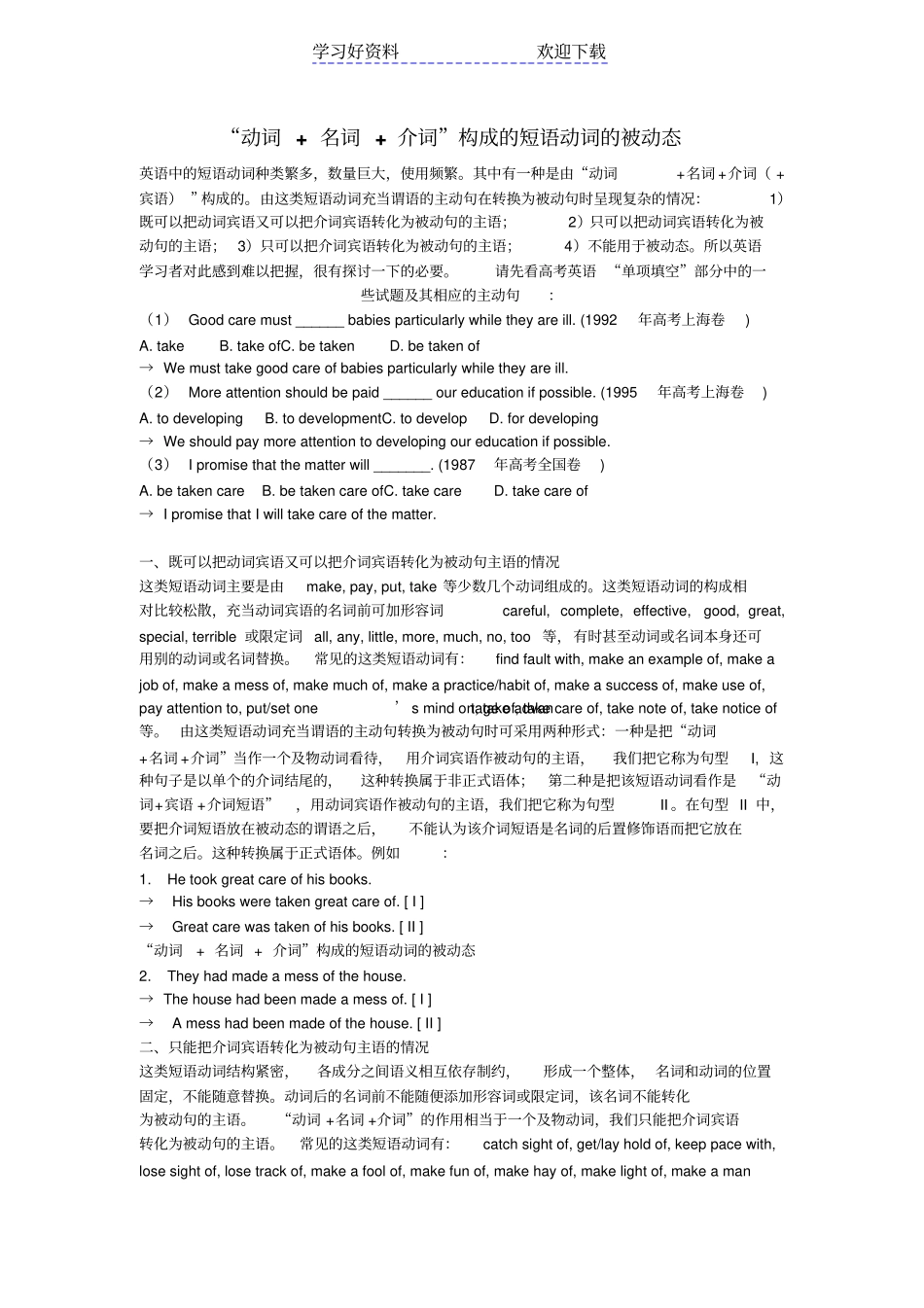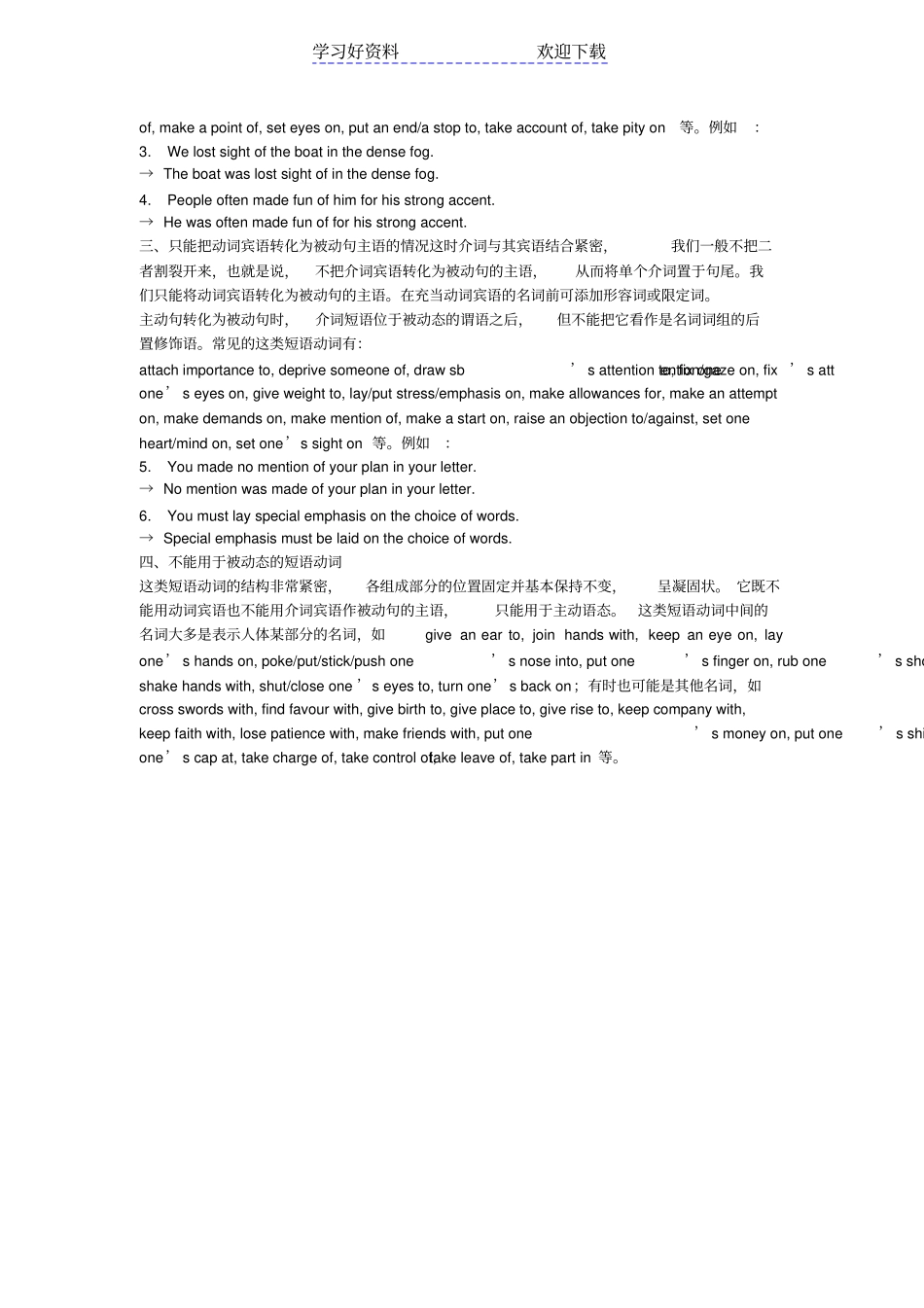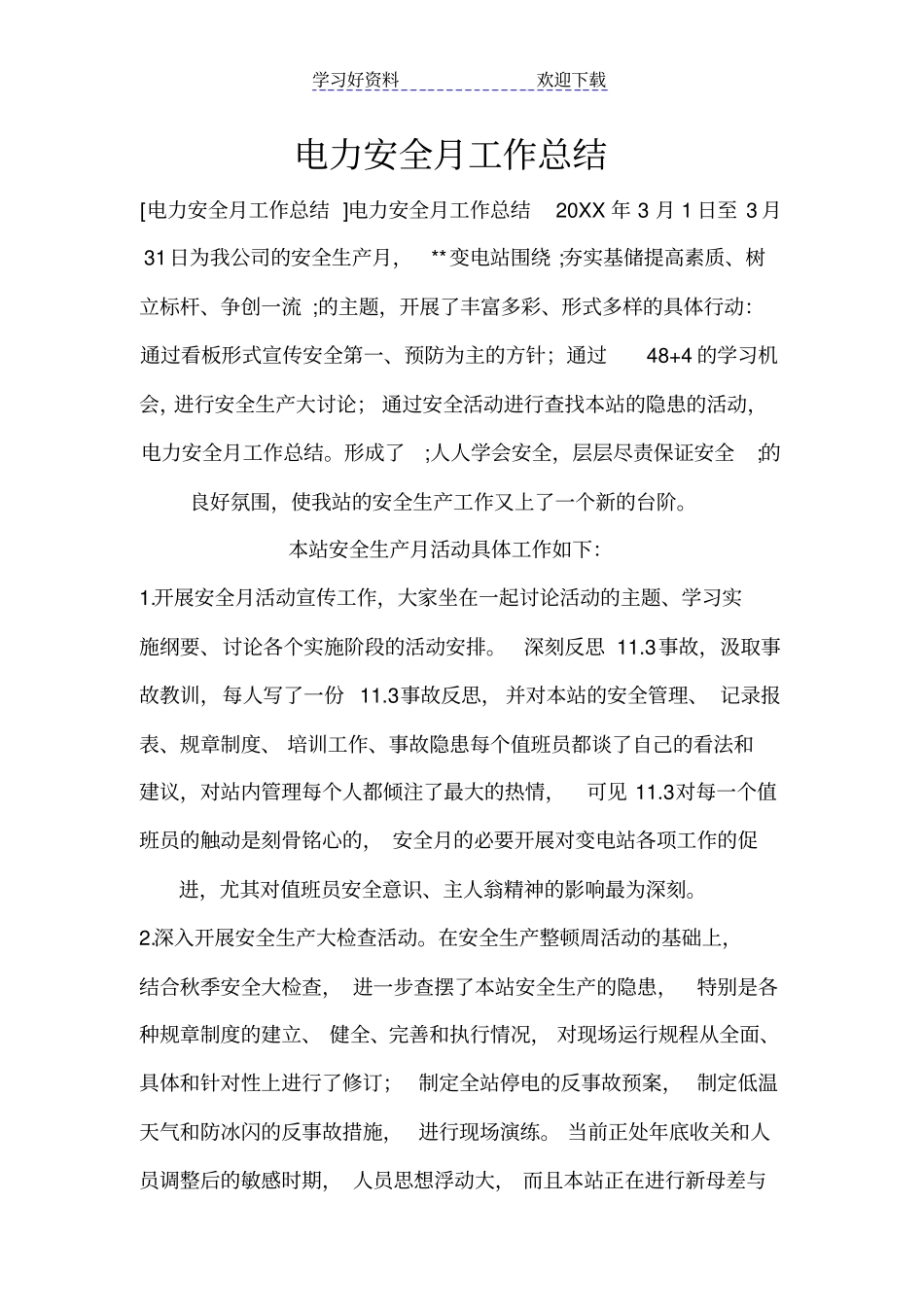学习好资料欢迎下载“动词 + 名词 + 介词”构成的短语动词的被动态英语中的短语动词种类繁多,数量巨大,使用频繁。其中有一种是由“动词+名词 +介词( +宾语) ”构成的。由这类短语动词充当谓语的主动句在转换为被动句时呈现复杂的情况:1)既可以把动词宾语又可以把介词宾语转化为被动句的主语;2)只可以把动词宾语转化为被动句的主语; 3)只可以把介词宾语转化为被动句的主语;4)不能用于被动态。所以英语学习者对此感到难以把握,很有探讨一下的必要。请先看高考英语 “单项填空”部分中的一些试题及其相应的主动句:(1) Good care must ______ babies particularly while they are ill. (1992 年高考上海卷) A. take B. take ofC. be taken D. be taken of → We must take good care of babies particularly while they are ill. (2) More attention should be paid ______ our education if possible. (1995 年高考上海卷) A. to developing B. to developmentC. to develop D. for developing → We should pay more attention to developing our education if possible. (3) I promise that the matter will _______. (1987 年高考全国卷) A. be taken care B. be taken care ofC. take care D. take care of → I promise that I will take care of the matter. 一、既可以把动词宾语又可以把介词宾语转化为被动句主语的情况这类短语动词主要是由make, pay, put, take 等少数几个动词组成的。这类短语动词的构成相对比较松散,充当动词宾语的名词前可加形容词careful, complete, effective, good, great, special, terrible 或限定词 all, any, little, more, much, no, too 等,有时甚至动词或名词本身还可用别的动词或名词替换。常见的这类短语动词有:find fault with, make an example of, make a job of, make a mess of, make much of, make a practice/habit of, make a success of, make use of, pay attention to, put/set one’ s mind on, take advantage of, take care of, take note of, take notice of等。 由这类短语动词充当谓语的主动句转换为被动句时可采用两种形式:一种是把“动词+名词 +介词”当作一个...


